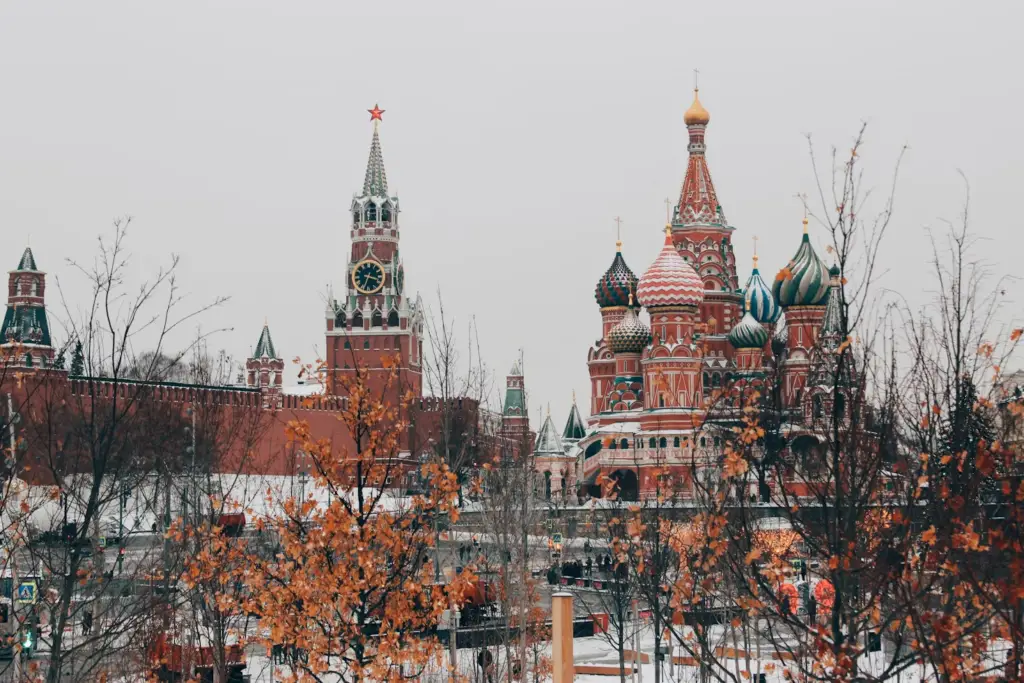Unveiling the Top 17 Powerful Countries in the World on Exploring Their Influence and Psychological Impact

In a world shaped by geopolitical dynamics, economic strength, military prowess, and cultural influence, certain nations rise to prominence as the most powerful players on the global stage. These countries wield significant influence and impact, shaping the course of international affairs and driving progress and change in various fields. Let’s delve into the top 12 powerful countries in the world and explore why they hold such sway in the global arena.

Page Contents
Unveiling the Top 17 Powerful Countries in the World on Exploring Their Influence and Psychological Impact

- United States: As the world’s largest economy and military superpower, the United States tops the list of powerful nations. Its unparalleled economic strength, technological innovation, and military capabilities make it a dominant force in global affairs, shaping policies, alliances, and agendas worldwide.
- China: With its rapid economic growth and expanding military capabilities, China has emerged as a formidable global power. As the world’s second-largest economy and a major player in international trade, China’s influence extends across regions, fueling debates about its rise and implications for global stability.
- Russia: Despite economic challenges, Russia remains a significant player on the world stage, particularly in matters of geopolitics and security. With its vast natural resources, military strength, and diplomatic maneuvering, Russia asserts its influence in regions such as Eastern Europe, the Middle East, and Central Asia.
- Germany: As Europe’s largest economy and a key player in the European Union, Germany exerts significant influence on regional and global affairs. Its economic prowess, technological innovation, and leadership in areas like renewable energy and automotive manufacturing solidify its position as a powerful and influential nation.
- United Kingdom: Despite its smaller size compared to other global powers, the United Kingdom wields significant influence in areas such as finance, diplomacy, and culture. As a permanent member of the UN Security Council and a major player in international trade and finance, the UK remains a key player in global affairs.
- France: Renowned for its cultural heritage, military strength, and diplomatic influence, France holds a prominent position in global politics and culture. As a nuclear power and a key player in the European Union, France plays a crucial role in shaping international policies and agendas.
- Japan: Despite its relatively small size and population, Japan ranks among the world’s most powerful countries due to its technological innovation, economic strength, and cultural influence. As a major player in global trade, technology, and finance, Japan plays a vital role in shaping Asia-Pacific dynamics and global affairs.
- India: With its large population, growing economy, and strategic location in South Asia, India is emerging as a key player in global politics and economics. As the world’s largest democracy and a major player in areas such as technology, space exploration, and renewable energy, India’s influence is on the rise.
- Brazil: As the largest economy in South America and a key player in global trade and agriculture, Brazil wields significant influence in regional and global affairs. With its abundant natural resources, cultural diversity, and growing geopolitical ambitions, Brazil plays a crucial role in shaping the dynamics of Latin America and beyond.
- South Korea: Renowned for its technological innovation, economic strength, and cultural influence, South Korea has emerged as a major player in global affairs. As a leading exporter of technology, automobiles, and entertainment, South Korea’s influence extends far beyond its borders, shaping trends and perceptions worldwide.
- Saudi Arabia: With its vast oil reserves, strategic location, and influence in the Middle East, Saudi Arabia holds significant sway in global energy markets and geopolitics. As a major player in OPEC and a key ally of Western powers, Saudi Arabia’s actions and policies have far-reaching implications for global stability and security.
- Canada: Known for its natural beauty, multicultural society, and stable economy, Canada ranks among the world’s most powerful nations. As a major player in areas such as energy, finance, and diplomacy, Canada’s influence extends beyond its borders, contributing to global peace, prosperity, and cooperation.
- Australia: As a major player in the Asia-Pacific region, Australia wields significant influence in areas such as trade, security, and environmental policy. With its stable economy, advanced technology, and strategic alliances, Australia plays a crucial role in shaping regional dynamics and global affairs.
- Italy: Renowned for its rich cultural heritage, economic strength, and diplomatic influence, Italy holds a prominent position in global politics and culture. As a founding member of the European Union and a major player in areas such as fashion, design, and cuisine, Italy’s influence extends far beyond its borders.
- South Africa: As the largest economy in Africa and a key player in regional politics and economics, South Africa holds significant sway on the African continent and beyond. With its rich natural resources, diverse population, and geopolitical significance, South Africa plays a crucial role in shaping the future of Africa and global affairs.
- Turkey: With its strategic location bridging Europe and Asia, Turkey holds significant geopolitical importance. As a major player in regional politics, trade, and security, Turkey’s influence extends across the Middle East and Eurasia. Its rich history, cultural heritage, and economic strength contribute to its prominence on the global stage.
- Netherlands: Known for its advanced economy, progressive policies, and global trade connections, the Netherlands ranks among the world’s most powerful countries. As a key player in international finance, technology, and innovation, the Netherlands exerts influence in areas such as renewable energy, shipping, and diplomacy.

Moscow, Russia Clock Tower and City Scape

The City Landscape of Tokyo
The Psychological Impact of Powerful Countries

The psychological impact of powerful countries on the world can be profound and far-reaching, influencing perceptions, attitudes, and behaviors on both individual and societal levels.
Here are some key ways in which powerful countries can affect the psychology of people globally:
- Perception of Power and Influence: Powerful countries often serve as symbols of strength, authority, and success on the global stage. Their economic, military, and cultural dominance can shape perceptions of what it means to be powerful and successful in the modern world, influencing individuals’ aspirations, ambitions, and self-esteem.
- Sense of Security and Stability: Powerful countries play a crucial role in maintaining global security and stability through their military capabilities, diplomatic efforts, and alliances. The perceived strength and stability of these nations can instill a sense of security and confidence among people worldwide, reassuring them of a stable and predictable international order.
- Cultural Hegemony and Globalization: Powerful countries, particularly those with significant cultural influence, can shape global norms, values, and identities through their media, entertainment, and consumer products. The spread of American culture through Hollywood movies, music, and brands, for example, has contributed to the phenomenon of Americanization and cultural homogenization in many parts of the world.
- Psychological Impact of Hegemonic Power: The dominance of powerful countries can evoke a range of psychological responses, including admiration, envy, resentment, and fear, among individuals and nations. The unequal distribution of power and resources in the global system can exacerbate feelings of injustice, inequality, and marginalization, fueling social and political tensions both domestically and internationally.
- Perception of Global Responsibility: Powerful countries are often expected to take on leadership roles in addressing global challenges such as poverty, climate change, and conflict resolution. The perceived failure of powerful nations to fulfill their global responsibilities can lead to disillusionment, cynicism, and loss of trust in international institutions and cooperation.
- Impact on Mental Health and Well-being: The actions and policies of powerful countries, particularly in areas such as warfare, economic sanctions, and humanitarian interventions, can have significant implications for the mental health and well-being of individuals and communities worldwide. War, displacement, and trauma resulting from conflict and geopolitical instability can have long-lasting psychological effects on affected populations, contributing to issues such as anxiety, depression, and post-traumatic stress disorder (PTSD).
- Psychological Effects of Global Inequality: The widening gap between powerful countries and less developed nations can fuel feelings of inferiority, helplessness, and resentment among marginalized populations. The perception of being on the receiving end of global inequality and injustice can undermine individuals’ sense of agency, dignity, and self-worth, contributing to social unrest, extremism, and radicalization.
In summary, the psychological impact of powerful countries on the world is complex and multifaceted, influencing perceptions, attitudes, and behaviors on a global scale. While powerful nations can inspire admiration and confidence through their strength and leadership, they can also evoke feelings of resentment, insecurity, and inequality, particularly among marginalized populations. Understanding these dynamics is essential for promoting global cooperation, social justice, and psychological well-being in an increasingly interconnected world.
Conclusion
In conclusion, the top 17 powerful countries in the world wield significant influence and impact on global affairs, shaping the course of history, economics, and geopolitics. From economic giants like the United States and China to regional powers like Russia and Germany, these nations play a crucial role in driving progress, stability, and change on the world stage. Understanding their influence and dynamics is essential for navigating the complexities of the modern world and building a more peaceful, prosperous, and interconnected global community.







